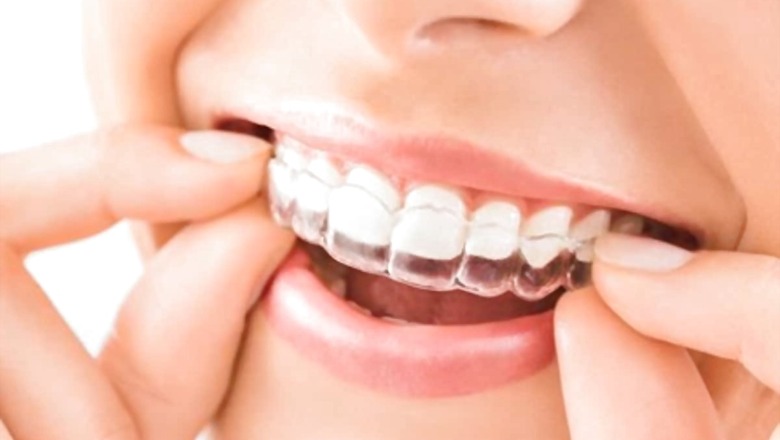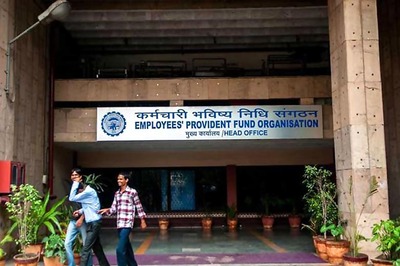
views
All dentists are accustomed to being asked some questions that sound strange only to them. From concerns about the eyes being affected by tooth removal to why plaque doesn’t go away with regular brushing - they’ve pretty much heard it all.
Most of these misconceptions are born out of the fear of dental screening and procedures and keep people from maintaining their oral health. Dr Sonia Bhatt, a Dental Surgeon associated with myUpchar, addresses five such dental myths that have no scientific logic behind them.Myth 1: Harder brushing gives cleaner teeth.
It is a myth that brushing your teeth vigorously would make them cleaner. Instead, that hard force can cause abrasion which is the loss of the hard tooth surface. Abrasion leads to severe sensitivity and sometimes tooth pain. A proper brushing technique should be used with mild strength.Myth 2: Dental cleaning can cause sensitivity.
Despite brushing the teeth regularly, some people may get an excessive deposit of plaque (sticky colourless bacterial deposits over the surface of the tooth) and calculus (a hardened form of plaque) on their teeth. To remove plaque and calculus, the person would require a dental cleaning or scaling. It is a non-invasive procedure which involves the use of an ultrasonic scaler. An ultrasonic scaler has a blunt tip which works via mechanical vibration along with continuous irrigation with water.
The excessive calculus and plaque make the gums recede. When dental cleaning is done, the teeth that were previously covered with tartar (calculus) get exposed. This leads to temporary sensitivity which resolves on its own in a day or two. Your dentist may prescribe you a toothpaste containing potassium nitrate which can help reduce sensitivity.Myth 3: After a dental cleaning, the teeth start moving.
If a person has mild or moderate plaque and tartar deposits, they would not experience any such problem. However, mobility can be seen in a person who is already suffering from periodontitis, a serious gum disease that damages the gums and destroys the bone that supports the tooth. You can prevent periodontitis by getting dental checkups every five months.Myth 4: Removing teeth from the upper jaw affects the eyes and brain.
This is a misconception as removing a tooth from the upper jaw would not affect either your brain or your eyes at all. The nerves associated with eyes (optic nerve, oculomotor nerve, abducent nerve and trochlear nerve) are completely different from the nerves associates with the upper jaw (posterior superior alveolar nerve, greater palatine nerve, nasopalatine nerve and infraorbital nerve).Myth 5: Children do not require brushing until they turn four or five.
Just like adult teeth, brushing of the milk teeth is equally important. Parents should encourage brushing of their kids’ teeth immediately after the eruption of first milk tooth in the mouth (6-8 months onwards). You must not put your regular toothpaste on your child’s brush - brush only with water until the age of two and use a pediatric toothpaste from then on. The child must be encouraged to brush after bottle-feeding or else the bacteria in the oral cavity would thrive on the sugar-filled milk and would make acids that can cause cavities. This is medically called Nursing Bottle caries in milk teeth.For more information, read our article on Cavities (Dental Caries).Health articles on News18 are written by myUpchar.com, India’s first and biggest resource for verified medical information. At myUpchar, researchers and journalists work with doctors to bring you information on all things health.


















Comments
0 comment